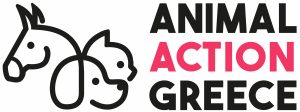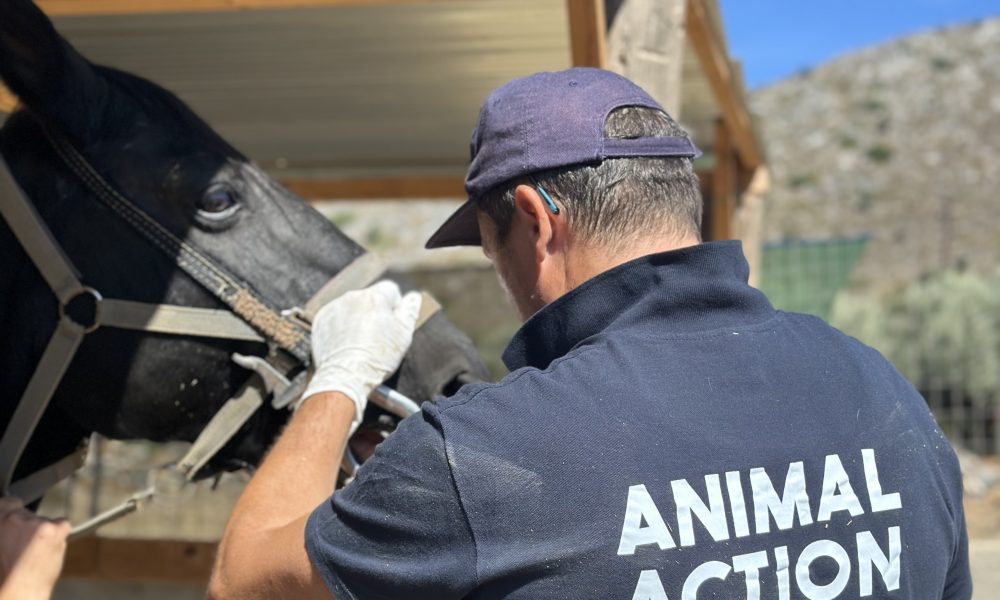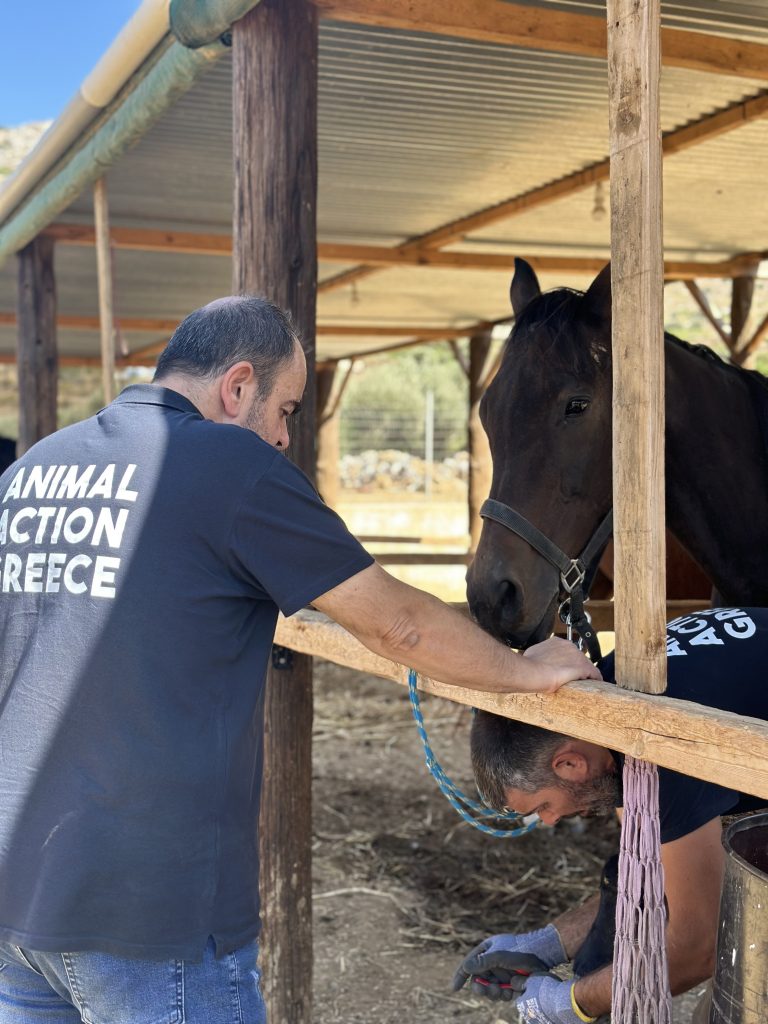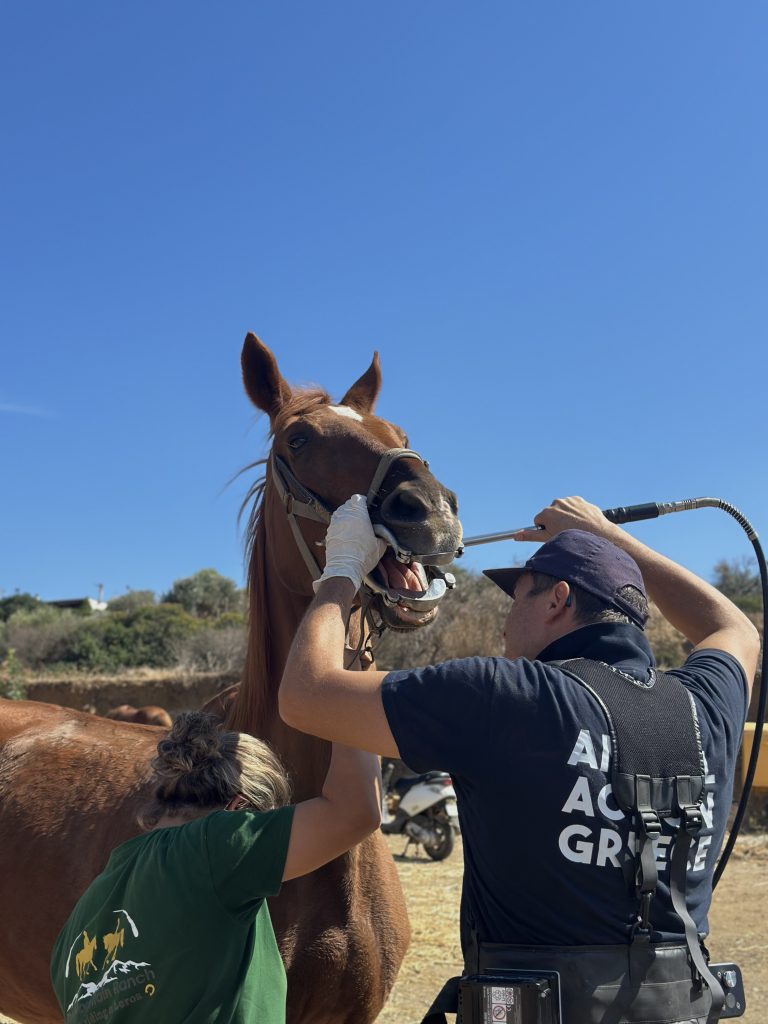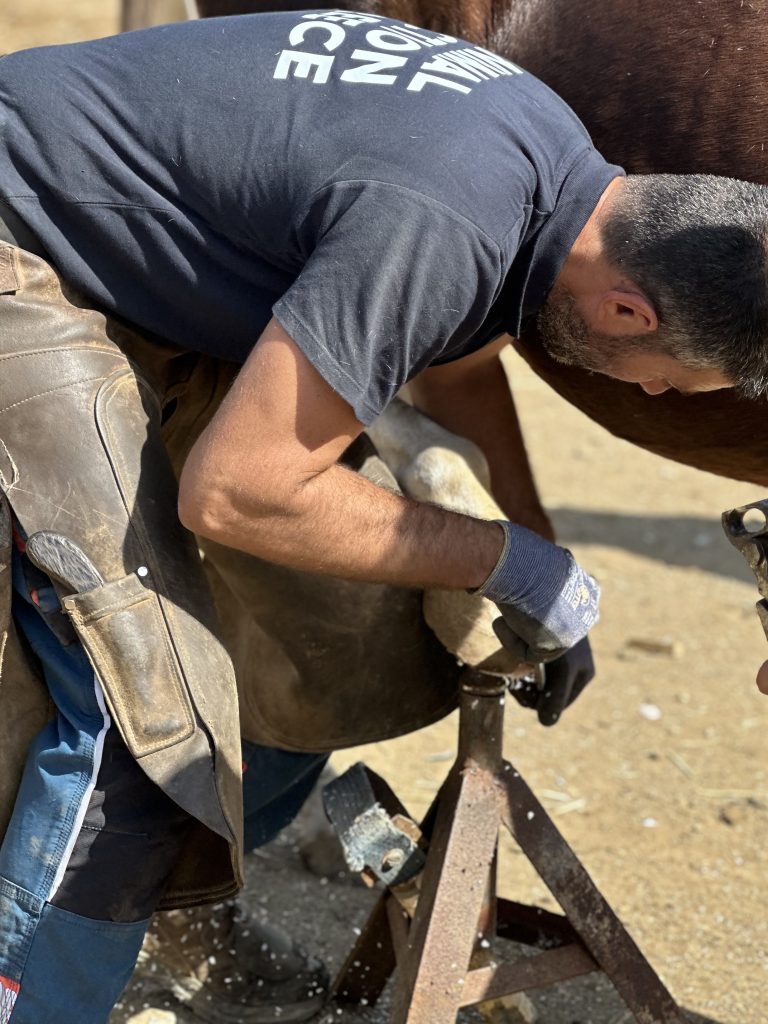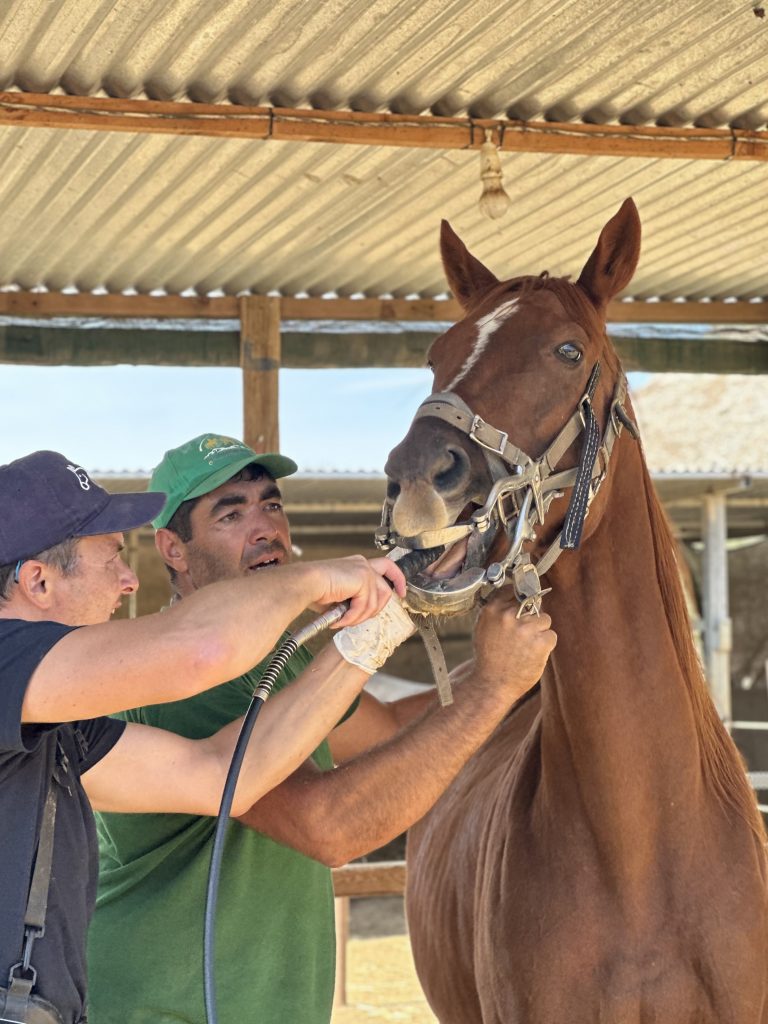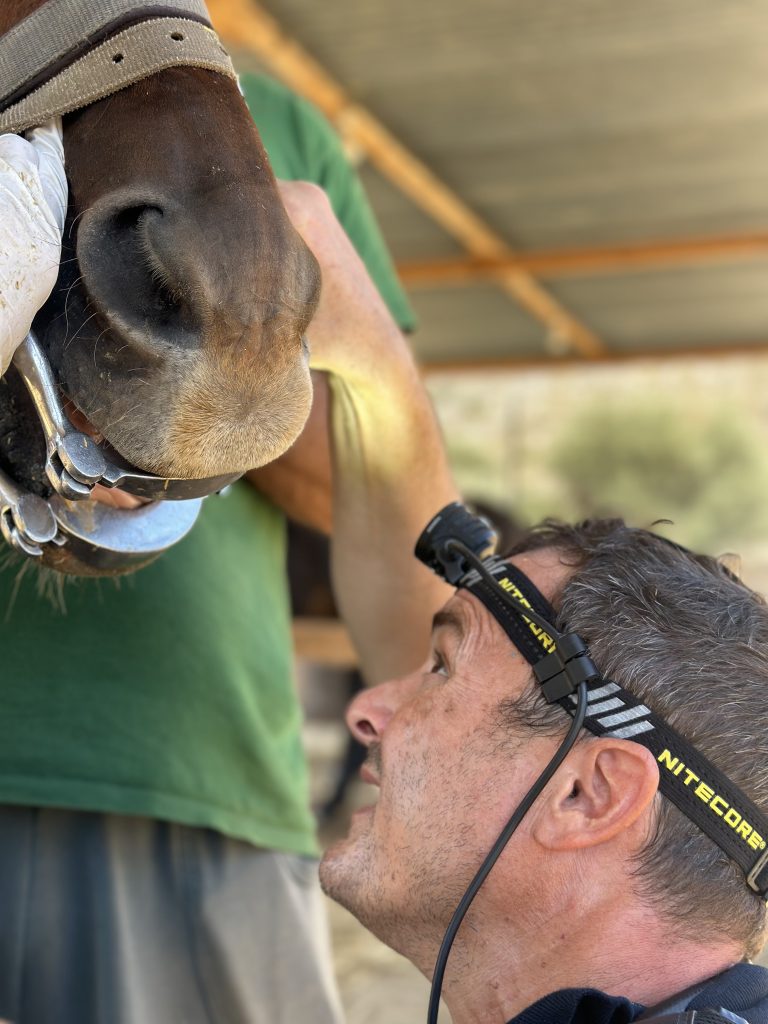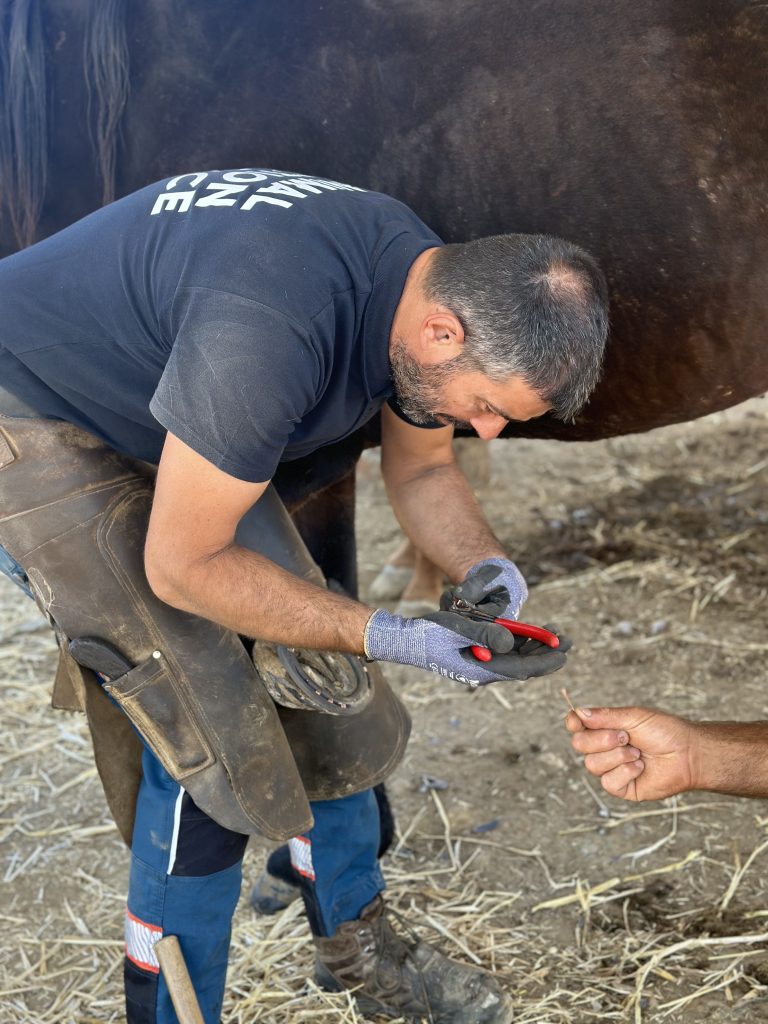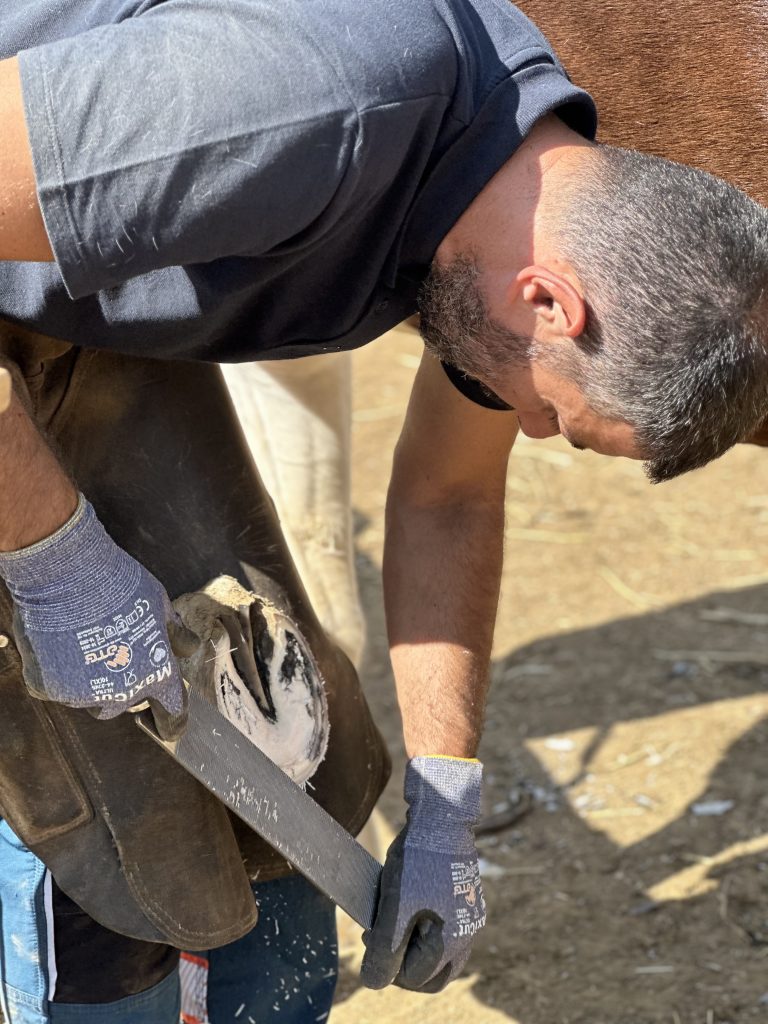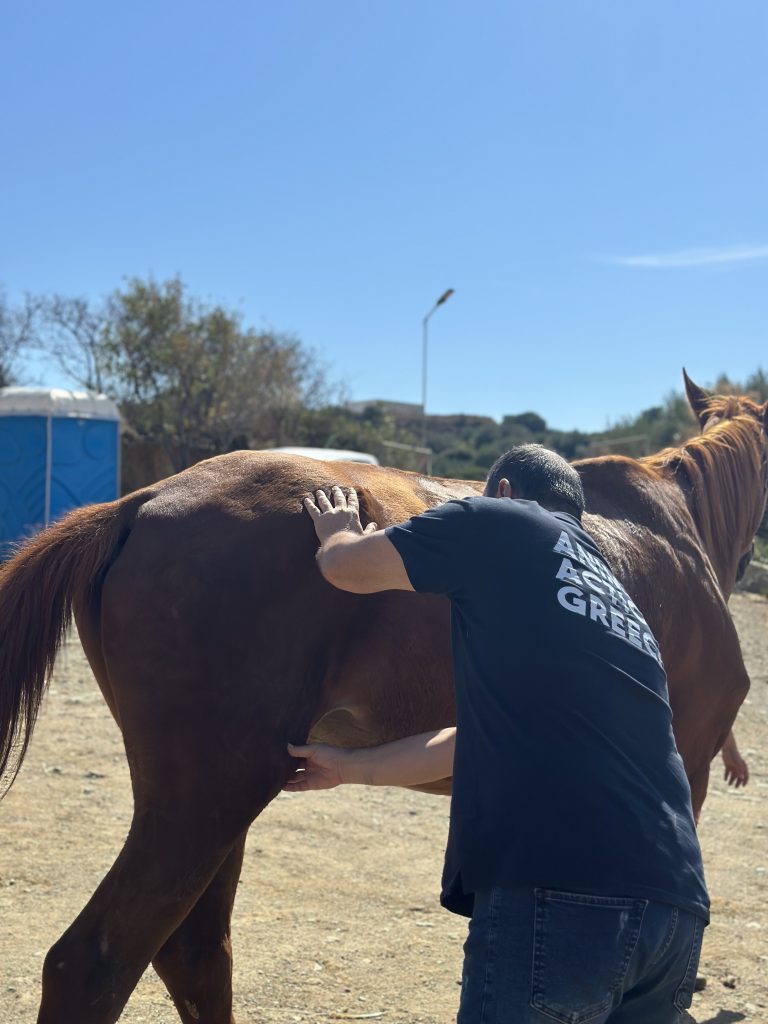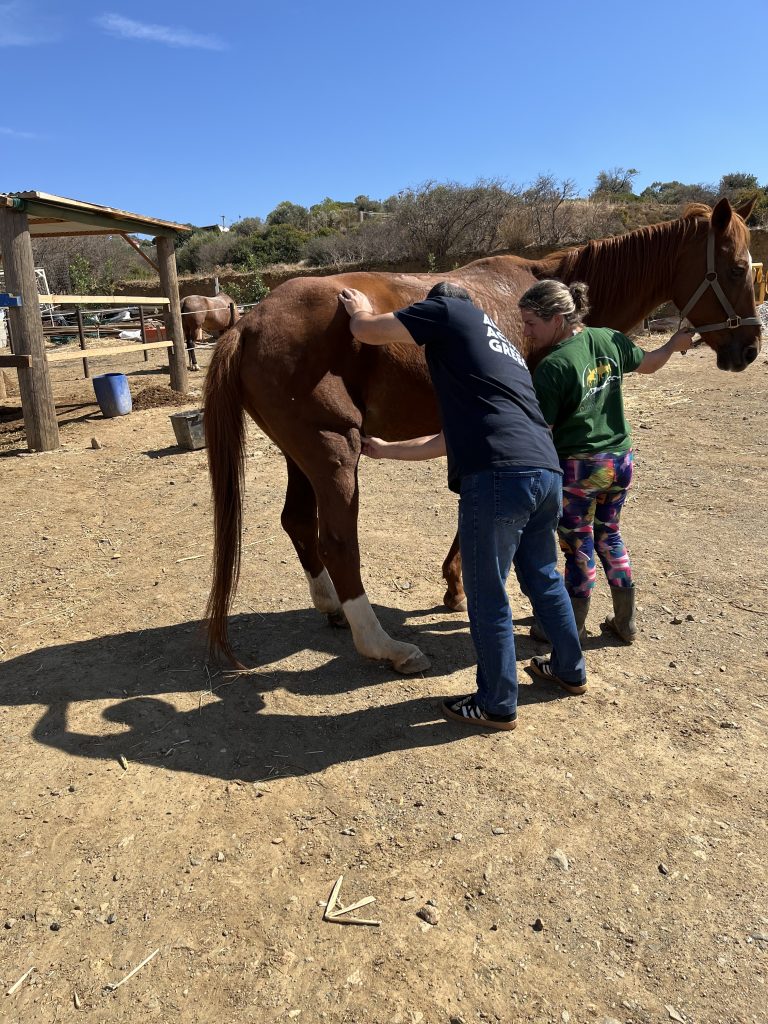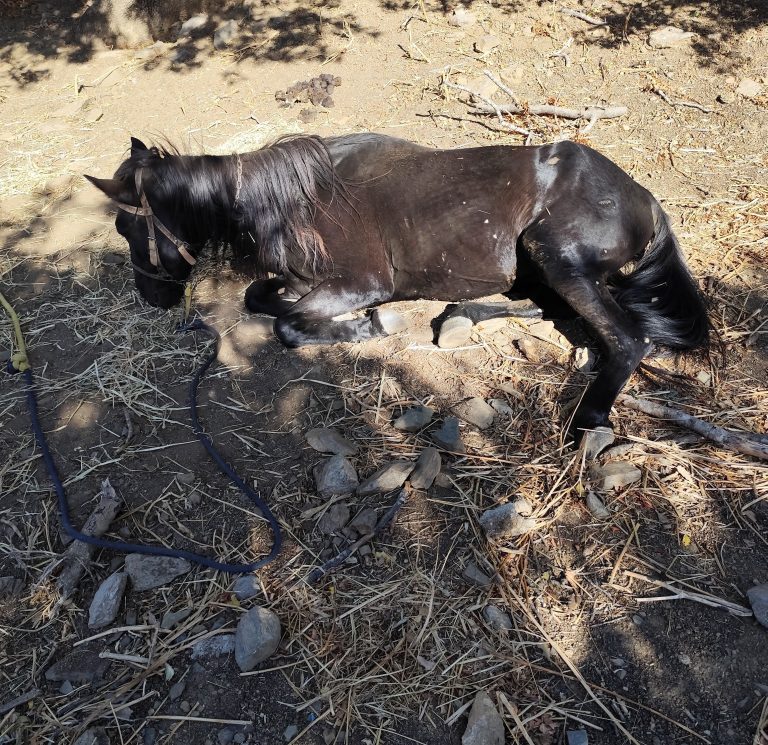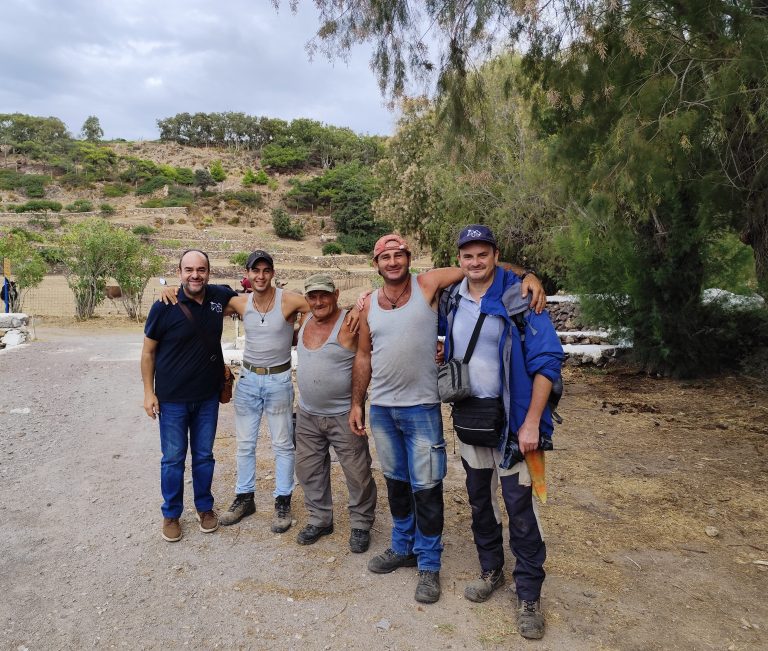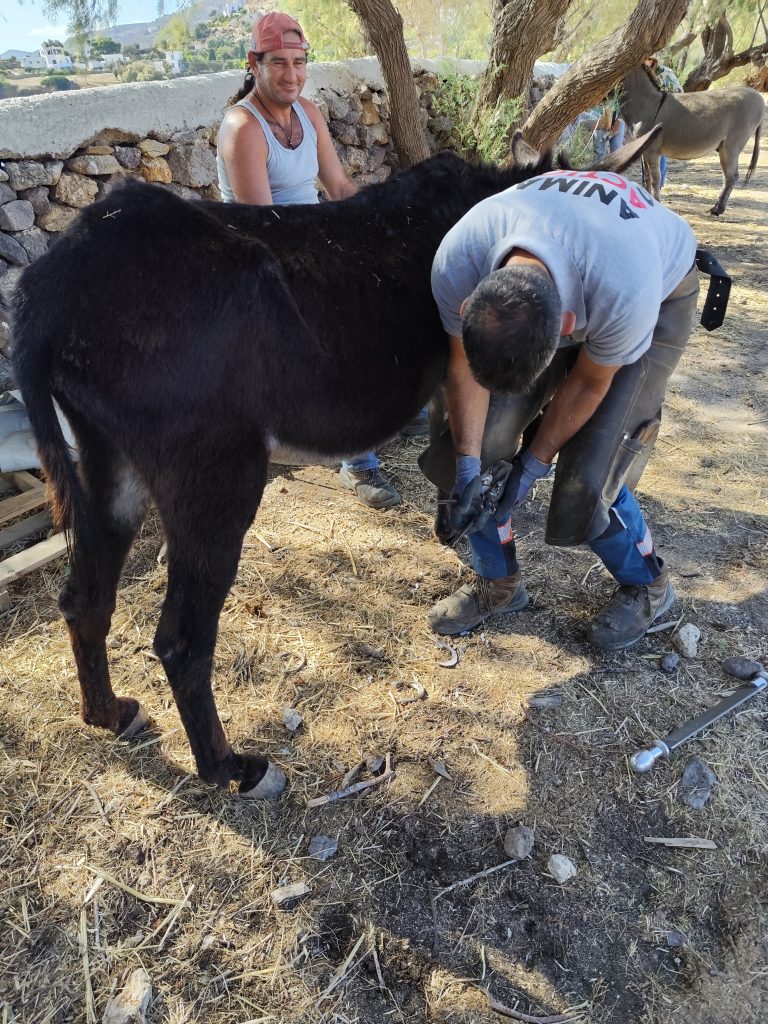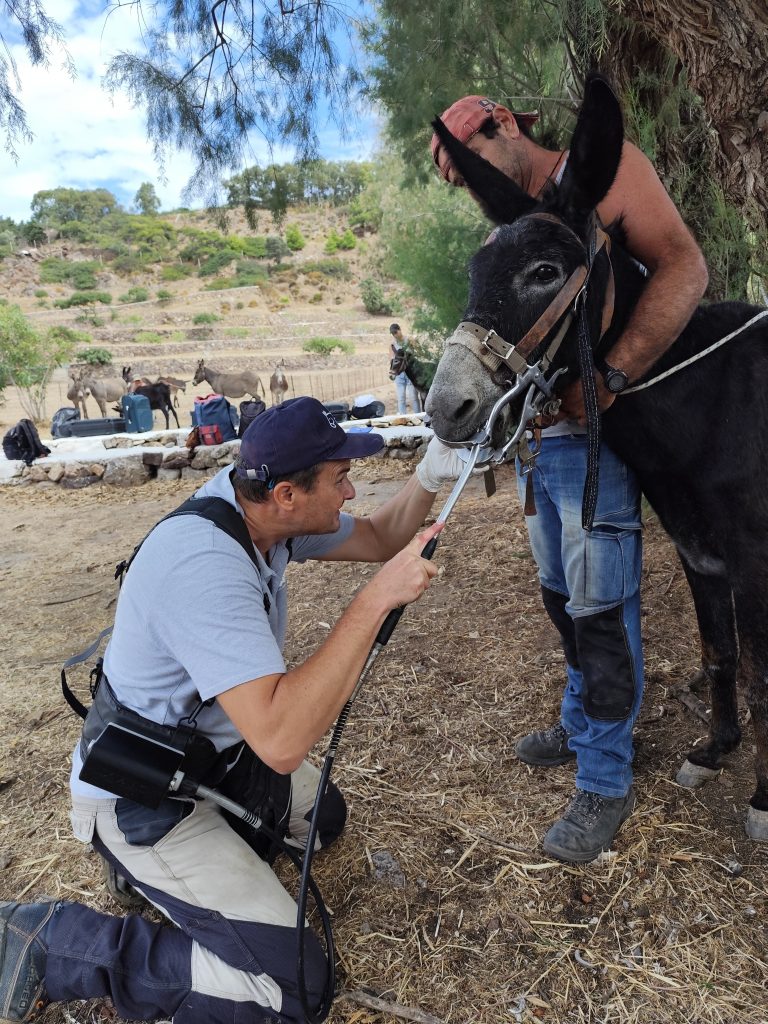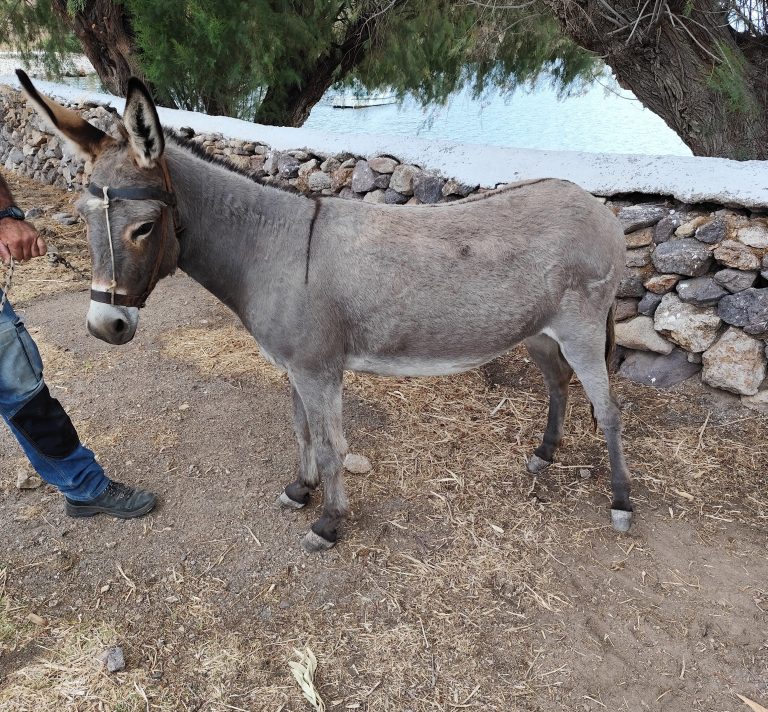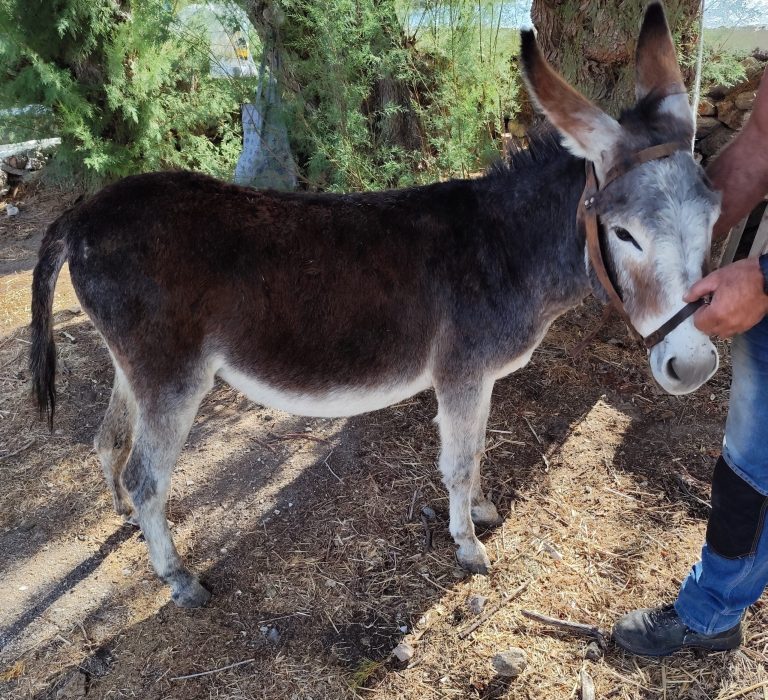From 2-4 October 2025, the Animal Action Greece equine team carried out a 3-day outreach mission which included ‘island hopping’ between the islands of Leros, Lipsi and Patmos. These Dodecanese islands experience all the daily challenges of life in remote locations—limited travel options, scarce health services, and heavy dependence on weather conditions. As a result, residents often find themselves in difficult situations throughout the year. In such places, where even basic human healthcare can seem like a luxury, our Equine Programme is often regarded as “manna from heaven.”
The team consisted of veterinarian Kostas Okkas, dental technician Alkis Gkeskos and farrier Tasos Skyllas who offered their valuable services to 52 equines (19 donkeys and 33 horses).
Leros
In Leros, the team treated 18 animals (2 donkeys and 16 horses).
One of the two donkeys, which had suffered from severe skin problems caused by fly bites last year, was in excellent condition this time. This improvement was thanks to the owner’s consistent use of insect repellent throughout the summer, following the team’s advice.
Fifteen horses were treated at a small riding facility that also provides a home for several rescued equines. The owners strive to maintain a good welfare level and follow all advice provided by the team. One horse with a history of severe upward fixation of the patella was found this year with oedema in the lower legs and signs of a possible heart problem. The owners were advised to retire this horse from work.
The overall hoof condition was good. Since the owner shoes the horses himself, Tasos demonstrated correct shoeing techniques, highlighting key points to watch for and common mistakes to avoid.
Several large dental hooks were removed with motorized equipment by Alkis, while all horses received dental treatments.
A serious health case was also treated in a nearby village in Leros. An adult horse had developed instability and severe trembling the day before the team’s arrival, which worsened until the animal collapsed. The symptoms were suspect for infectious encephalitis. The horse was treated with strong antibiotics and steroids, and the recovery was remarkable—within three days the animal was standing again, the spasms had ceased, and it returned to normal condition.
Patmos
In Patmos, the three carers – grandfather, father and son – of the Meloi sanctuary for retired donkeys, were delighted to see us again. With their valuable assistance, the team was able to provide full treatments to all 17 elderly residents.
The donkeys’ skin condition had improved remarkably, not only because this year’s outreach visit took place in autumn, but primarily due to the carers’ consistent application of our advice regarding insect repellents and general husbandry practices.
Most of the donkeys, despite their advanced age, had also shown an improvement in body condition. This progress was largely attributed to the dental treatments carried out during the previous visit, when excessively sharp edges, hooks, and ramps were floated, enabling the animals to chew more effectively.
A horse that was also treated in Patmos showed a notably improved mouth condition compared to our last visit.
Lipsi
On Lipsi the team once again met the couple who eagerly await their visit each year. 16 horses received their annual routine dental floating and hoof trimming. The Friesian gelding, which continues to receive veterinary care from the local veterinarian, was re-examined during this visit. As previously advised, radiographs would ideally be required to determine the underlying cause of the recurring abscess in its mouth. However, due to the remoteness of the area and the high cost, this remains unfeasible at present. Nevertheless, the team’s equine dental technician performed dental floating to remove sharp edges, a procedure that has consistently improved the horse’s comfort while chewing and led to the disappearance of the pus for several months before it reappears.
As always, the outreach visits to these remote Dodecanese islands bring great relief to the owners, who have no access to professional care – apart from the tireless local veterinarian Mihalis Kontrafouris who looks after all the animals in the area. We extend our sincere thanks to him for his valuable collaboration with Elisa, our Equine Care Programme Coordinator, in organizing every detail of this trip.
Despite time constraints and the challenges posed by the boat schedules, the team successfully completed all planned activities. The owners warmly demonstrated their hospitality by providing meals and covering accommodation expenses—an act of generosity that greatly supports the Equine Programme and enables us to continue reaching communities across the country.
